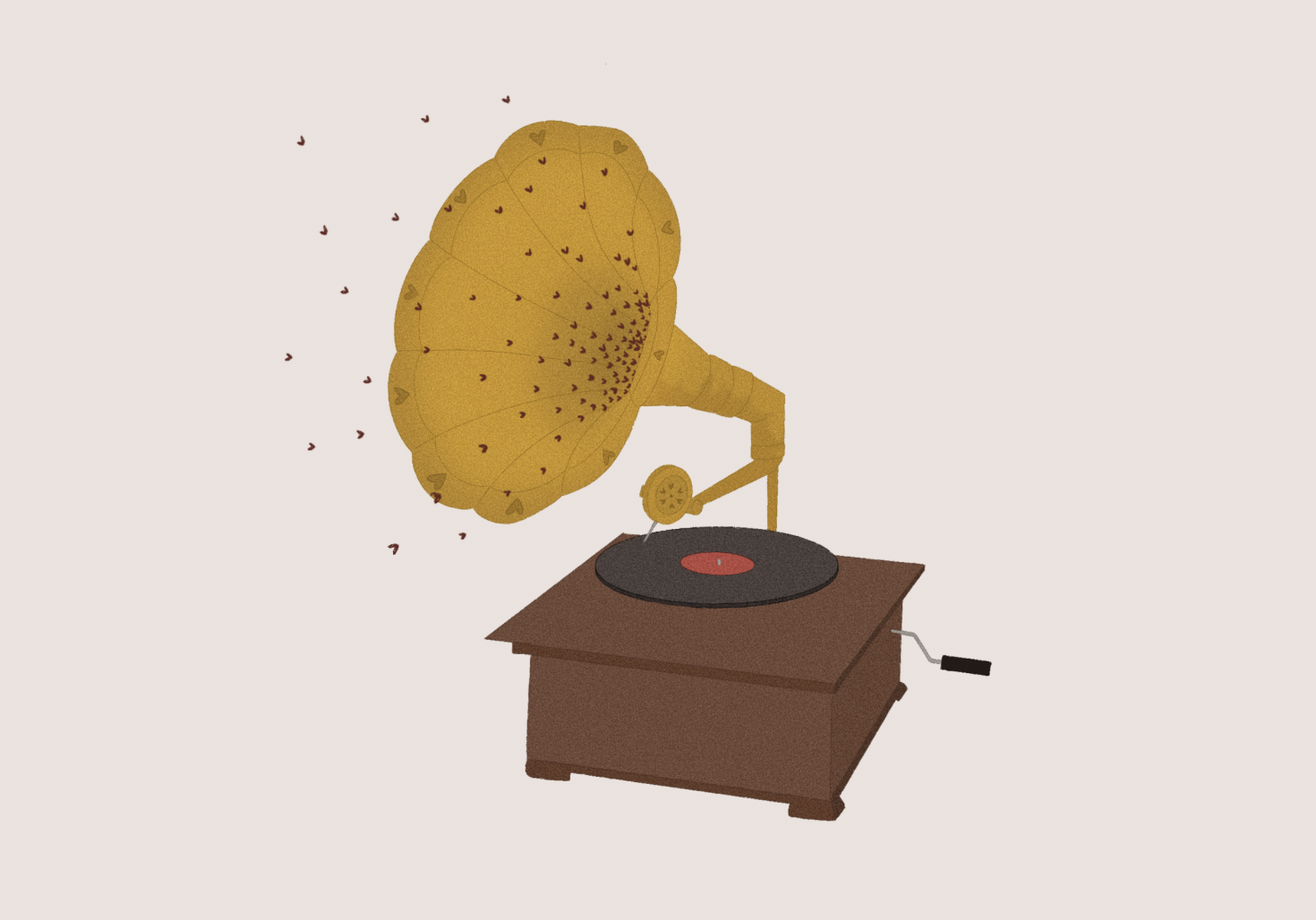How Black culture forever changed the music industry
February, 2022
Graphic: Carolina Kok
Despite their lack of recognition, Black people have always had an influence on the American music industry, starting from the creation of ragtime and blues in the late 1800s. The earliest forms of Black music were rooted in religion and faith, with spiritual gospel as the foundation for what would later become a multitude of unique genres.
Early jazz and blues were the beginning of contemporary American music, becoming popular across the South and Chicago as well. Singers like Louis Armstong, Ella Fitzgerald, and Nat King Cole were the icons of the time, despite not recording their music until years later. Blues singers sang slow, sorrowful tunes, with messages reflecting the poverty of African Americans and establishing a rich cultural heritage that was beginning to be expressed through music. When jazz emerged in the 1900s, its syncopated beats (on the weak or “off ” count) and use of new instruments such as the saxophone soon became one of the most defining sounds of the time.
Jazz continued its hold on the American public until the 1960s, when it gave way to soul and funk. This new style of music borrowed many elements from jazz, blues, and ragtime, such as improvised solos, horn arrangements, and guitar foundations. Vocal parts influenced by soul music and gospel were also heavily used. Artists such as Marvin Gaye, the Temptations, and Earth, Wind & Fire were popular, and their lyrics and themes reflected the changing socioeconomic status of African Americans and their struggle for racial equality. The word “soul,” which had previously been associated with romance and relationships, widened to also include social awareness for the injustices African Americans faced.
In the 1970s, these messages took on a more optimistic tone, a result of the recent cultural liberation. James Brown, Aretha Franklin, and Stevie Wonder rose to popularity with their upbeat grooves and modern sounds. Influenced by wild fashions and science fiction, funk began to take on a more psychedelic quality, creating the disco genre. Disco music and clubs influenced the development of better sound equipment as the clubs demanded better mixers and speakers in order to provide an atmosphere full of energy and excitement for their patrons.
After the disco craze, pop music was the defining sound of the 1980s, and its accessibility and variety allowed Black artists to flourish. Pop artists like Michael Jackson, Whitney Houston, and Prince rose to fame by incorporating previous genres of music such as jazz, R&B, soul, and funk, and transforming them into a revolutionary new sound. The launch of MTV in the early 1980s also led to many songs being accompanied by music videos, and the added visual element helped further popularize pop music as a genre.
In the 1990s, the block party trend popularized hip-hop and artists such as Nas, Lauryn Hill, and Tupac. Block parties as we know them stemmed from the Jamaican dancehall “sound clashes,” where opposing DJs would play different songs and compete in an effort to win over the crowd. When this was brought to New York in the 1980s by DJ Kool Herc, it inspired many DJs to bring giant speakers outside and hype up the crowds. This was where the technique of spinning two records at the same time and mixing them together to create a dance break became popular. As the popularity of these parties grew, countless new rappers and groups started creating songs under the loosely interpreted hip-hop genre.
The 2000s saw the continuation of R&B and hip-hop changing with the times. Many songs now included psychedelic riffs and the audio processor Auto-Tune, which heavily influenced artists of today. New access to digital instruments, track boards, and mixers gave artists the ability to create music without needing any actual instruments. The socioeconomic status of many Black communities and the power to create music as an act of rebellion influenced the feel of Black artists’ music in the 2000s. Black artists such as Destiny’s Child, Outkast, Usher, and Snoop Dogg brought issues like racism, police brutality, and the struggles of romance to the public through their music as a means of inspiring their listeners. Black music evolved greatly throughout the 20th century, and each decade has many unique and important sounds. But throughout all those decades of music, love has been the predominant theme in many Black artists’ music. Everyone has experienced some form of romantic struggle — what better thing to do than write a relatable song about it? Many musicians have songs like this, and they are often the artist’s biggest hit. “L-O-V-E” by Nat King Cole, “My Girl” by the Temptations, “Sexual Healing” by Marvin Gaye, “I Wanna Dance With Somebody” by Whitney Houston, and “Forever My Lady” by Jodeci are a few.